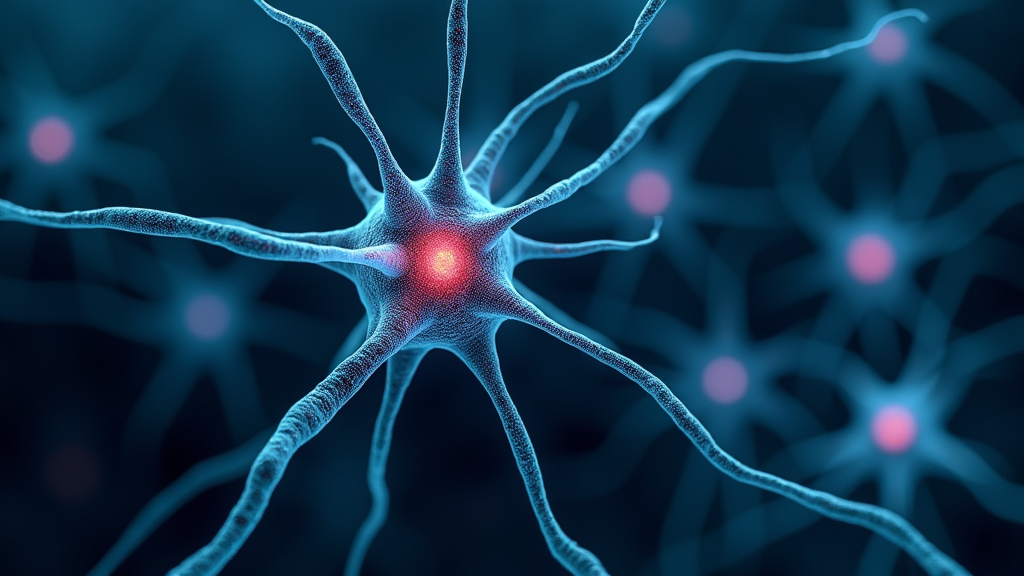Working memory is the mental workspace that holds and processes information for brief periods. It is crucial for everyday activities such as following conversations, solving problems, or planning your day. In this article, I check out what working memory is, why it matters, and offer practical tips to help step up its performance. An image below helps illustrate the concept of working memory.

Understanding Working Memory
Working memory is often described as a cognitive workspace where information is temporarily stored and manipulated. Unlike long-term memory—which holds data over extended periods—working memory deals with immediate tasks that require quick thinking and rapid decision making. Whether you are calculating numbers in your head, following a set of instructions, or engaging in lively conversations, this system is at work behind the scenes. Researchers have discovered that its capacity is limited, meaning it can only hold a handful of items at one time. Despite this limitation, working memory plays a critical role by filtering unnecessary details and keeping relevant information readily available. This selective process allows you to focus on what is important in the present moment, ensuring that you manage everyday cognitive tasks with greater ease and efficiency.
Basic Concepts of Working Memory
At its core, working memory is about holding and processing data at the same time. For example, when reading a sentence, your brain retains earlier words long enough to understand the complete thought being expressed. This temporary storage is not static—it is continually refreshed and updated as new information is introduced. This dynamic nature is what makes working memory so indispensable for tasks that require quick thinking. Studies have linked strong working memory performance to improved reasoning, better problem solving, and even enhanced creativity. Understanding these mechanisms provides insight into why some people handle complex tasks effortlessly while others may struggle when faced with distractions or an overload of information.
A Quick Guide to Boosting Your Working Memory
Improving your working memory might sound challenging, but there are straightforward strategies that can help step up its effectiveness. One practical method is repetition. Repeating information—either aloud or silently—can reinforce its presence in your cognitive workspace. Another useful technique involves chunking, where you group related pieces of information together into manageable units. This approach takes advantage of the brain’s natural ability to form patterns, making it easier for you to recall details when needed. In addition, engaging in mental exercises such as puzzles, strategic games, or other memory challenges can build your mental stamina over time. Finally, reducing external distractions by creating a quiet, focused environment allows your working memory to concentrate on the task at hand, further boosting its overall performance.
Challenges and Considerations in Working Memory
Despite its vital role, working memory is not without its challenges. Its limited capacity can be a significant hurdle, especially in high-pressure situations or when multitasking. When too much information is demanded at once, some details can easily slip through the cracks. Additionally, the efficiency of working memory is closely tied to the quality of neural connections in the brain. Factors such as fatigue, stress, and poor nutrition can impair these connections, diminishing your ability to process and recall information. External distractions—like a noisy environment or unexpected interruptions—can further disrupt this delicate system. Recognizing these challenges is the first step to managing your cognitive load better, allowing you to adapt your strategies for a smoother flow of thought during everyday tasks.
Techniques for Strengthening Working Memory
For those looking to take a more active role in improving their cognitive functions, there are several advanced techniques to consider. One effective strategy is engaging in focused mental workouts, such as training games and puzzles specifically designed to boost working memory. These exercises help exercise your brain in targeted ways, gradually building mental strength. Adopting healthy lifestyle habits is also very important. A balanced diet rich in essential nutrients, coupled with regular physical activity and adequate sleep, reinforces the neural pathways that support working memory. Moreover, using visualization and organization techniques can make abstract information more tangible. Creating mental images or simple diagrams transforms complex data into clear, memorable constructs, reducing the overall cognitive load. Over time, these combined efforts can lead to a more resilient and efficient working memory system.
Everyday Applications of Working Memory
The influence of working memory is evident in numerous everyday tasks. Whether you’re making simple decisions like choosing a meal or planning activities for the day, working memory is hard at work. In educational settings, students rely on it heavily to follow lectures, understand reading material, and solve problems during class. In the workplace, a robust working memory helps manage multiple projects, track deadlines, and process new information quickly. Even during leisure activities—be it cooking a new recipe or playing a game—this mental system ensures that you can sequence steps and adjust to changing conditions smoothly. By nurturing your working memory, you not only enhance your cognitive performance but also build confidence in your ability to manage day-to-day challenges more effectively.
Frequently Asked Questions
Question: What exactly is working memory?
Answer: Working memory is the mental system used for temporarily holding and processing information. It plays a key role in everyday activities like conversation, problem solving, and planning.
Question: How can I boost my working memory?
Answer: You can step up your working memory by adopting practices such as repetition, chunking related data together, engaging in focused mental exercises, and reducing environmental distractions.
Question: Can stress affect my working memory?
Answer: Yes, stress along with fatigue and poor lifestyle choices can impair the efficiency of working memory. Managing stress and ensuring proper rest are crucial steps to keeping your mental workspace in top condition.
Final Thoughts
Working memory is an essential component of our cognitive toolkit, influencing everything from everyday routines to complex problem solving. Although its capacity is limited, there are many ways to strengthen and optimize this mental workspace. The strategies discussed in this article—ranging from simple repetition and organized chunking to focused mental workouts and healthy lifestyle habits—can help improve your cognitive performance over time. Whether you are a student, a professional, or simply someone looking to improve your day-to-day functioning, investing in your working memory leads to clearer thinking and greater efficiency. Small, consistent changes can make a big difference. This adventure toward a sharper mind begins with understanding your own cognitive limits and gradually building upon them, turning challenges into opportunities for growth and success.
